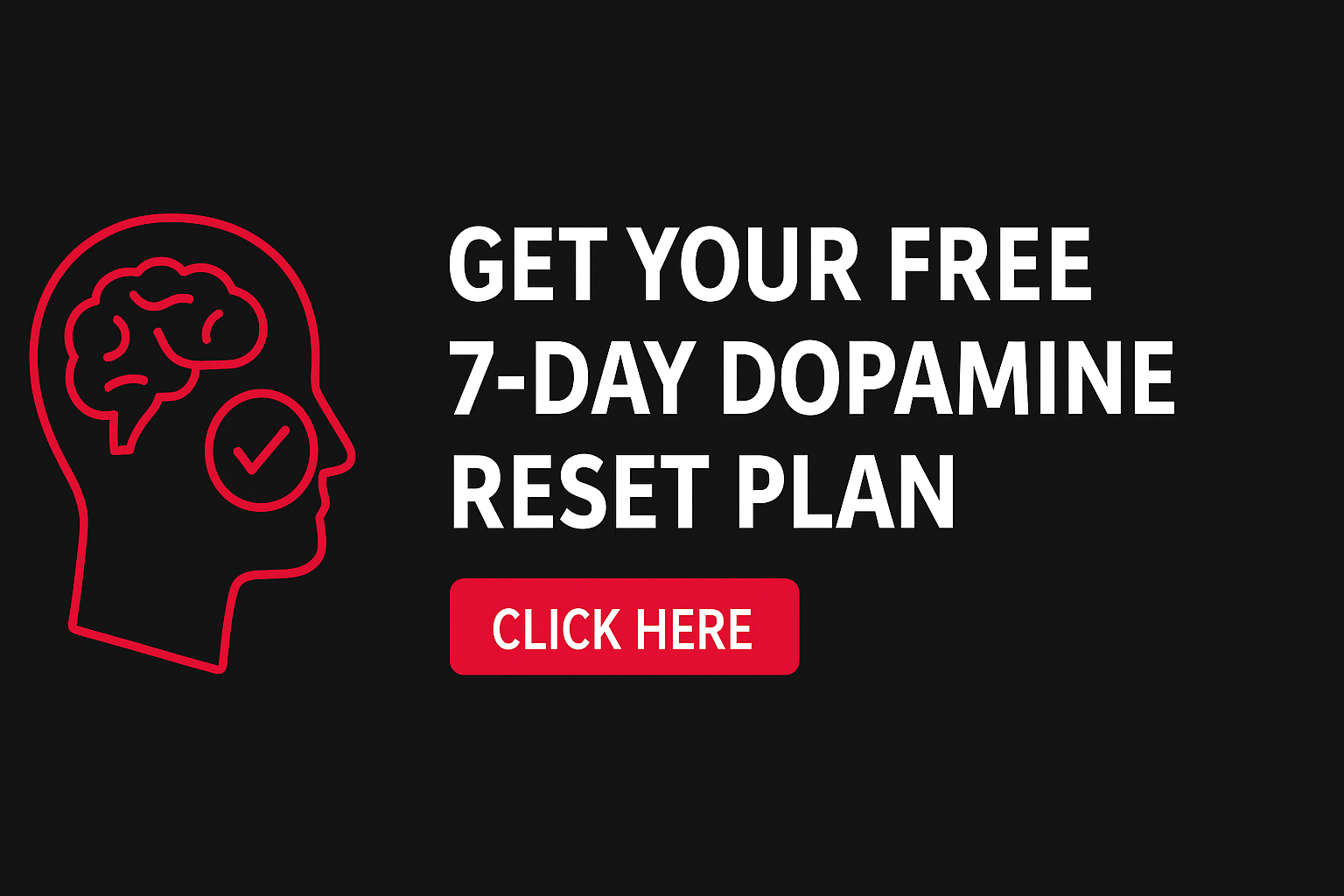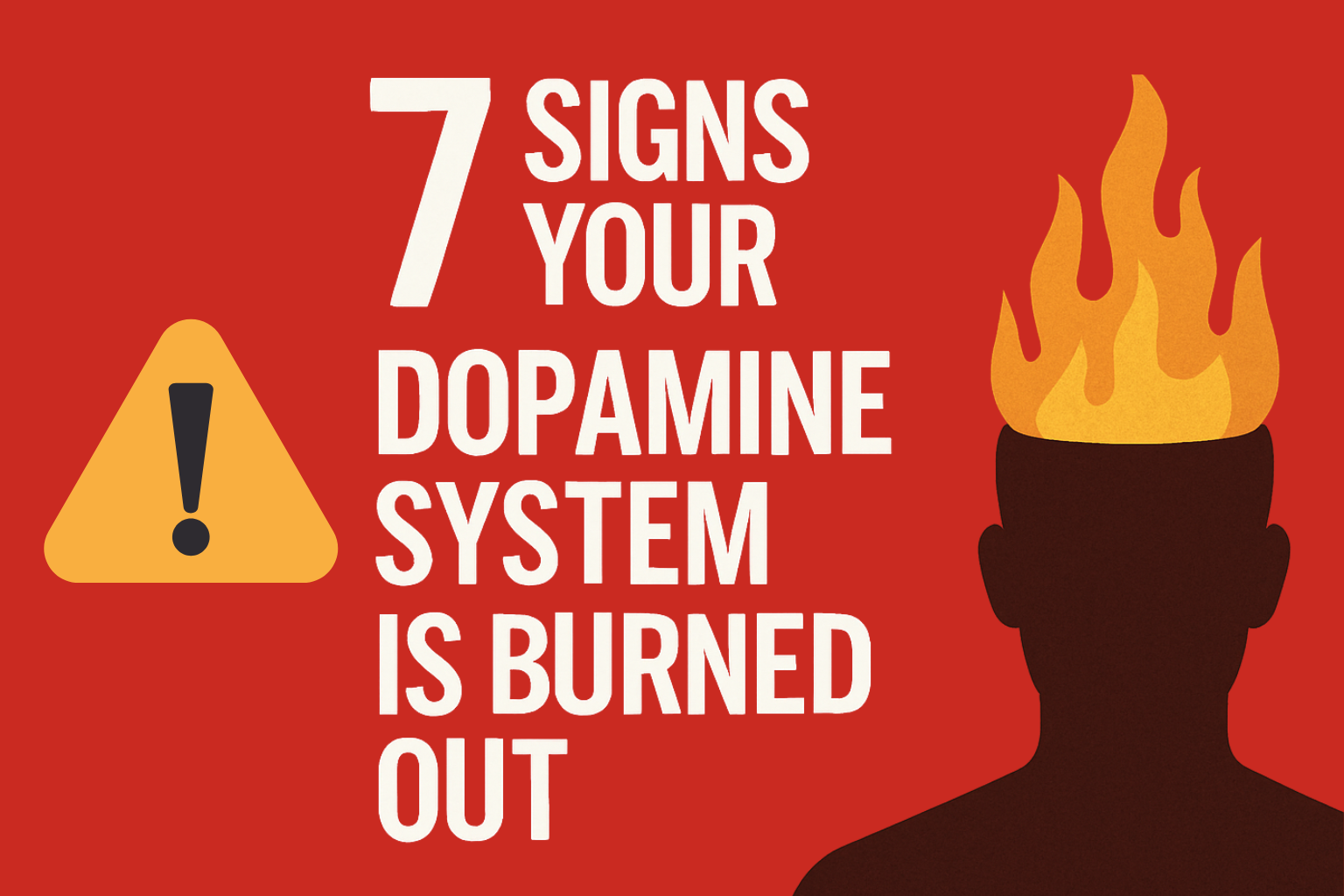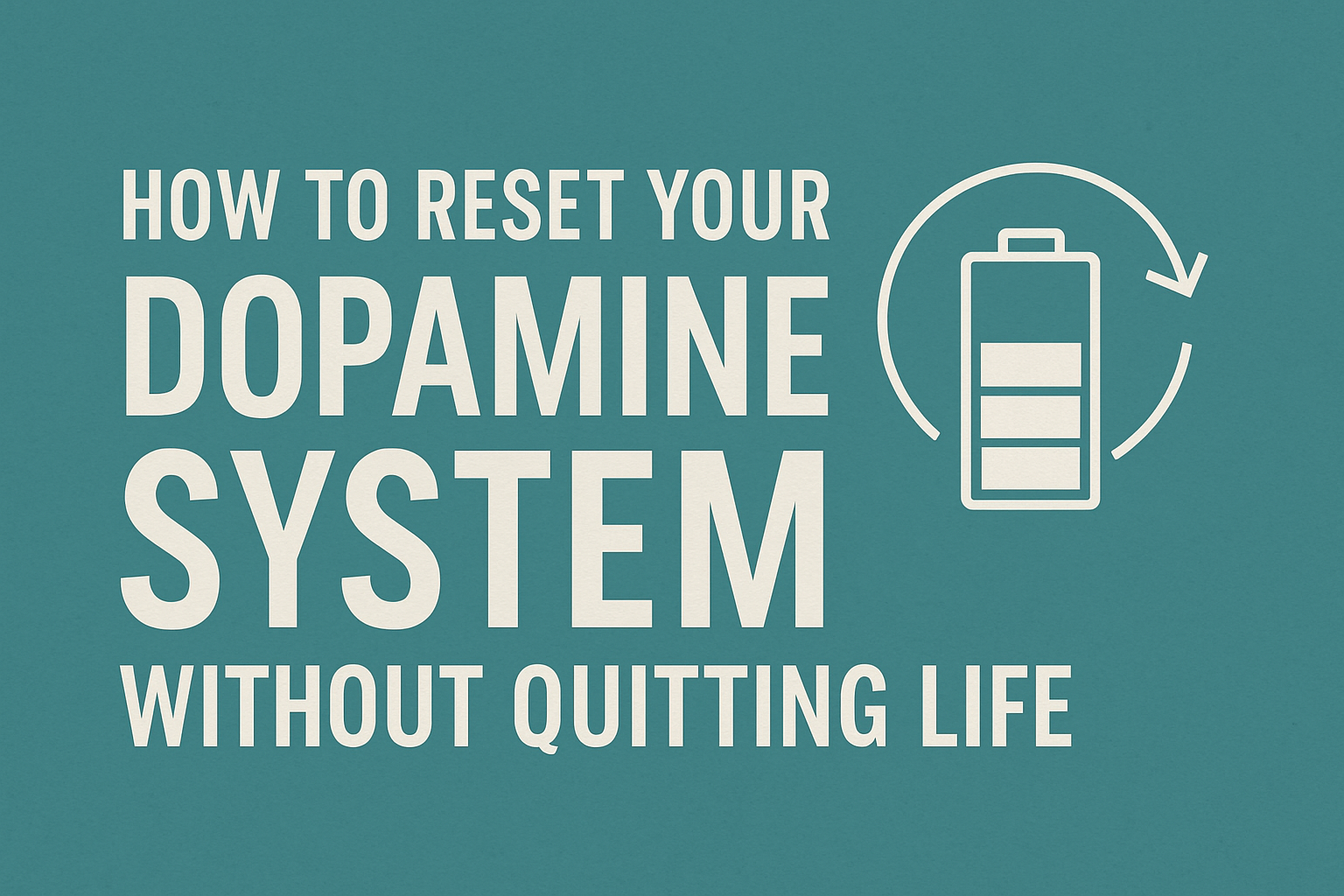Healthy dopamine habits are your brain’s internal motivation engine. They drive goal-setting, enhances learning, and rewards you with pleasure when you make progress. But in the modern world, this powerful system is under constant attack.
Every day, we engage in seemingly harmless habits that slowly degrade our dopamine sensitivity. The result? You feel unmotivated, unfocused, restless — and often addicted to instant gratification.
Let’s break down 7 daily habits that damage your dopamine pathways, and what to do instead to take back control.
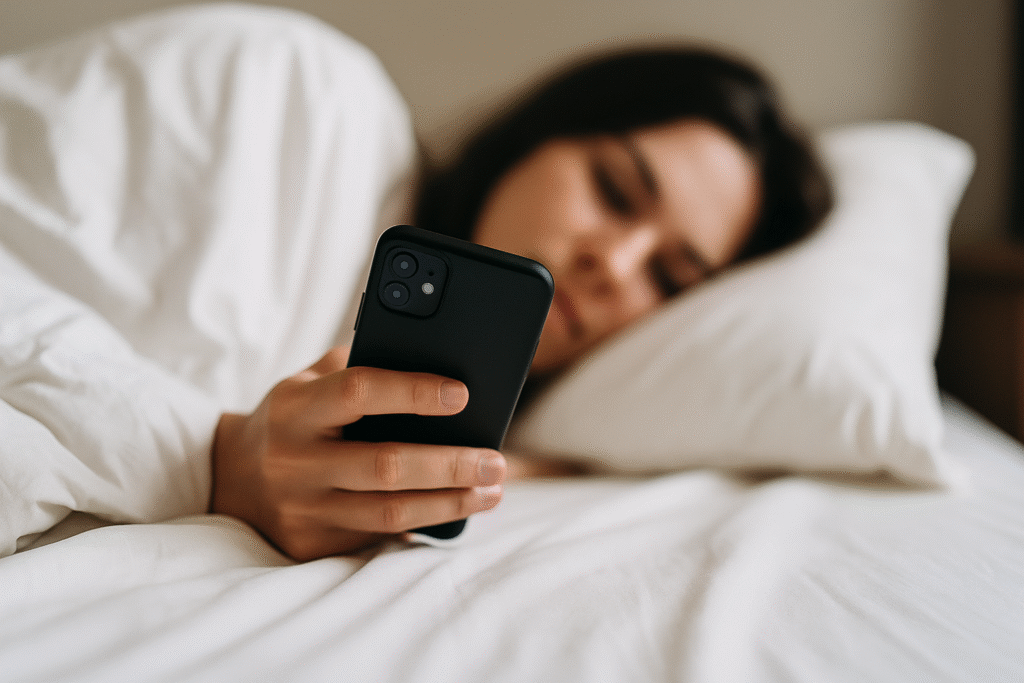
1. 📱 Checking Your Phone Within 5 Minutes of Waking Up
Let’s be honest — most of us do this. You wake up, roll over, and reach for your phone before you’ve even said a word. But this small act floods your brain with novelty, artificial stimulation, and comparison — all within seconds of waking up, its one of the most common dopamine habits.
Before you’ve even had a conscious thought, you’re triggering your brain’s reward circuits unnaturally through this bad dopamine habit.
You teach your brain:
“External chaos matters more than internal clarity.”
Why it matters: According to research from the University of California, early-morning screen exposure increases stress markers and disrupts natural dopamine rhythms. This creates a feedback loop where your brain craves immediate input upon waking. Over time, it weakens your natural ability to generate motivation internally.
🔄 Do this instead:
- Avoid screens for the first 30 minutes after waking.
- Drink water, get natural light, and breathe deeply.
- Set one clear priority for the day.

2. 🎮 Endless Scrolling
We’ve all been there — opening TikTok for “just a minute,” and suddenly 40 minutes have passed. Short-form content delivers bad dopamine habits in rapid bursts. Your brain begins to associate stimulation with constant novelty and speed. As a result, real-life activities start to feel dull.
Why it matters: You rewire your brain to need fast-paced stimuli which causes bad dopamine habits, which lowers your baseline focus and attention span. A 2022 study by Microsoft found that the average human attention span has dropped to 8 seconds — shorter than a goldfish.
🔄 Do this instead:
- Limit scrolling to a specific time window (e.g. 15 minutes).
- Consume content with depth: documentaries, podcasts, long-form articles.

3. 🎧 Multitasking With Background Noise
Maybe you eat lunch while watching YouTube, scroll while listening to a podcast, or play music while reading. This constant stacking of dopamine sources might feel efficient — but it erodes your brain’s ability to focus deeply.
Why it matters: Over time, your brain becomes overstimulated and struggles to find satisfaction in single-tasking. According to a Stanford study, multitasking reduces productivity by up to 40%.
🔄 Do this instead:
- Practice monotasking. Focus on one input.
- Try eating, walking, or working without background stimulation.
🎁 Want More?
7-Day Dopamine Habits Reset Plan. → Want access when it’s ready?
👉 [Click Here To Get Your FREE 7-Day Dopamine Reset Plan PDF]

4. ☕ Caffeine on an Empty Stomach
Grabbing coffee first thing feels like a ritual and is again, one of the most common of all dopamine habits — but doing so on an empty stomach spikes cortisol and can send your energy into a rollercoaster, unfortunatly it is one of the most misunderstood dopamine habits.
Why it matters: While caffeine does activate dopamine receptors, doing so without food leads to unstable energy, anxiety, and irritability. Nutritionists recommend pairing caffeine with healthy fats and protein for more stable neurochemistry.
🔄 Do this instead:
- Eat protein and fat before drinking caffeine.
- Delay caffeine by at least 60–90 minutes after waking.

5.🌞 Skipping Sunlight in the Morning
If you stay indoors all morning, you’re missing out on one of nature’s most powerful mood regulators. Morning light helps regulate your circadian rhythm and supports serotonin, which later converts to dopamine.
Why it matters: According to Harvard Health, even 10 minutes of early sunlight exposure can improve sleep and mood regulation. Skipping this deprives your brain of a key dopamine-building block.
🔄 Do this instead:
- Spend 5–10 minutes outside within 30 minutes of waking.
- Avoid sunglasses during this time.
- Let your eyes take in natural light indirectly.
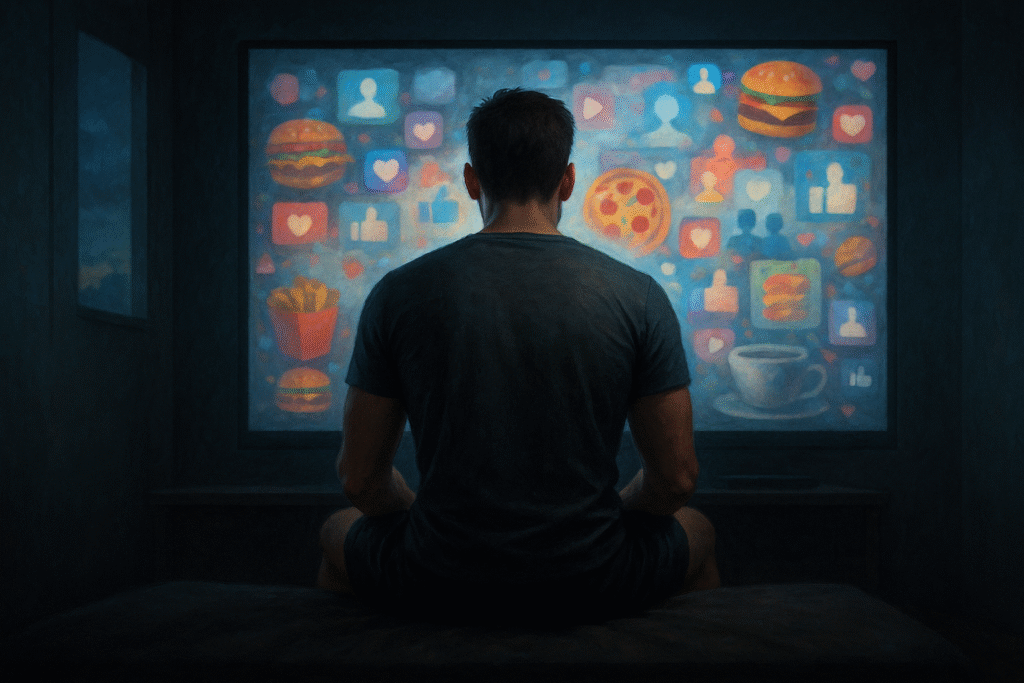
6. 🧠 Consuming “Dopamine Porn”
No, it’s not just explicit content. Dopamine porn refers to any rapid-reward stimulus that hijacks your attention: junk food, clickbait, social media, or binge-watching.
Why it matters: These inputs give you dopamine without effort — which dulls your system’s sensitivity. Neuroscientists call this “dopamine downregulation.” Over time, you need more stimulation to feel anything at all.
🔄 Do this instead:
- Focus on activities with delayed reward: fitness, creating, studying.
- Build something over time, not in a single click.

7. 🎯 No Clear Goals or Daily Wins
Ever had a day where you “did nothing” but still felt exhausted? That’s what happens when your dopamine system doesn’t get closure or accomplishment.
Why it matters: Good dopamine habits thrives on progress. When you don’t set goals, your brain wanders — seeking stimulation from distraction instead. In contrast, even small wins generate satisfaction and drive.
🔄 Do this instead:
- Start each day with 1 small, achievable goal (Make your bed, short run).
- Use habit trackers or journaling.
- Reward yourself after completing key tasks.

⚠️ Final Thoughts On Bad Dopamine Habits:
Your dopamine system isn’t broken. It’s just overstimulated, fragmented, and starved of real meaning.
The modern world profits from keeping you distracted and dissatisfied. But science shows we can reverse this through simple, conscious shifts.
When you reclaim your dopamine through intentional habits, you regain clarity, drive, and fulfillment. You stop reacting — and start building.
